タイのNGOネットワーク共同声明の最終版の英語版を
以下に掲載させていただく。
(ワード改行ができず、読みづらくてスミマセン)
***** ***** ***** *****
A Statement by Thai People’s Network to Monitor Nuclear Development
To Support Iwaishima Islanders Who Oppose
Chugoku Electric Power Company’s Nuclear Plant Construction and Reclamation at Kaminoseki Town in Yamaguchi Prefecture, Japan
The Iwaishima Island is located in Japan’s inland sea. It is a small island with the area of 7.67 km2 and the circumference of 12 km. The population of Iwaishima these days is approximately 500. Villagers maintain ways of life that are traditional to Japanese small islands by practicing nature-friendly agriculture, for instance, planting loquat (biwa) trees, harvesting loquat tea, and growing rice. It is also important to them to make use of local marine resources, by catching fish with takotsubo (an octopus trap), colleting seaweed, and making dried seaweed. Iwaishima preserves ancient island cultures, too, for example, through a festival called Kammai. In this cerebration, held every 4 years, villagers launch boats called Kaidenmasen into the ocean and perform a sacred dance to welcome and worship the god who comes to visit them on a boat from the opposite Kunisaki Peninsula. The festival depicts the island’s history which is said to be longer than 1,000 years.
About 3.5 km off the coast of Iwaishima is Tanoura in Kaminoseki Town, where the Chugoku Electric Power Company (CEPC) has a plan to build a nuclear power plant with the generation capacity of approximately 1,350 MW. Twenty-nine years ago, when Iwaishima villagers learned that a nuclear plant might be built only 3.5 km away from their homeland, most of them immediately expressed opposition to the project, recognizing that it would affect their nature-friendly agriculture as well as fishing activities and damage areas in the ocean which nurture various marine life, including a type of whale called sunameri and namekujiuo fish, rare birds, and endangered species, such as falcons. Iwaishima and neighboring places enjoy rich natural resources and biodiversity so much that the entire area has been designated by the Japanese government as part of Setonaikai National Park.
Iwaishima villagers have continued a campaign against the nuclear plant project for almost 30 years by forming Iwaishima Islanders’ Association against the Nuclear Plant with the purposes to carry out various activities both inside and outside the island. One important action is for members to come out from home at 6 o’clock every Monday evening, rally at an island harbor, hold a banner and wear a hair band with a slogan “We oppose the nuclear plant!”, and then march around the island for an hour or so. They have been mobilizing themselves 4 times a month for over 30 years and have already rallied 1,077 times. Demonstrators chant the following slogans in chorus which echo over the island:
Kirei na hurusato wo mamorou! (We will protect our beautiful homeland!)
Genpatsu hantai! Ei, ei, ou! (We oppose the nuclear power plant!)
Kirei na umi ya yama wo mamorou! (We will protect our beautiful mountains and ocean!)
Iwaishima villagers have been organizing various activities inside and outside the island to express their position against the nuclear project. When CEPC tried to place buoys to mark the zone for reclamation to build a power plant, Iwaishima villagers rode on all available boats to rush to close off the area, repeatedly demanding the company to halt construction activities. Every time, however, village leaders are prosecuted under the allegations that they have trespassed on and destroyed private properties, have resorted to violent means to interfere with CEPC’s work, and have even obstructed official duties of authorities, such as the police, who are deployed to protect the company’s benefits. Many village leaders are now facing court cases. In the beginning of 2008, CEPC, wanting to reclaim the site to build a power plant, submitted a request to Yamaguchi Prefecture to allow them to start reclamation. The prefecture gave consent. Iwaishima villagers in response have collected more than 850,000 signatures among themselves and from the Japanese general public against reclamation plans. Village representatives also filed a case with the court in October 2008, asking the court to order CEPC not to reclaim the ocean. The case is still being disputed.
As for the most recent situations as of last week, Thai People’s Network, which had been monitoring controversies over the nuclear project near Iwaijima, was informed by islanders that CEPC had sent workers to put up a fence to close off the area, which the company would want to reclaim to build a power plant, without paying due attention at all to voices of Iwaijima villagers as well as the Japanese general public who are against the project. Even at this very moment, Iwaijima villagers are trying to protect the sea and their island by protesting on boats against CEPC’s moves and demanding the company to stop reclamation, which will devastate the marine environment. However, CEPC and the prefectural government are very persistent about reclaiming the area to build a power plant.
Just like Iwaijima islanders, organizations and individuals working within Thai People’s Network, are also facing the Thai government’s policies to develop nuclear power, and have kept close eyes on the difficulties experienced by Iwaijima villagers with great sympathies. We are very much concerned about the conflicts that have emerged due to inflexible behaviors of CEPC and the prefectural government, who try to implement the nuclear project, while violating community rights and human rights, as well as ignoring voices and demands of Iwaijima islanders and the Japanese general public.
Thai People’s Network is also concerned that both constructing a power plant and reclaiming the ocean will affect Iwaijima villagers as well as people living in neighboring areas, especially fisher folks in and around the project site. They will lose livelihood means and access to rich natural resources and environment. Reclamation will also impact the entire inland sea.
At present, Iwaijima villagers are going through very strained situations. Thai People’s Network to Monitor Nuclear Development would like to send encouragement to all the villagers on Iwaijima and express our solidarity to their struggles, as well as those led by the Japanese public. Thai People’s Network oppose any activities to start the nuclear project which would damage the ocean, the local communities, and the rich natural resources and demand CEPC and the prefectural government to stop violating local people’s rights. We will continue to monitor the situations closely.
In solidarity
15 October 2010/2553
Thai People’s Network to Monitor Nuclear Development
Eco-Culture Study Group
Udonthani Environment Conservation Group
Northeast Human Rights and Peace Information Center
Community Resources Centre (CRC)
Thai Network of People Affected by Mining Activities
Nuclear Watch
Palang Thai
BioThai Foundation
Project for Ecological Awareness Building (EAB)
Thai Working Group for Climate Justice
Sustainable Energy Network, Surin Province
Foundation for Consumers
Sustainable, Alternative Development Association (SADA)
Chiang Mai Network to Stop Global Warming
Foundation for Ecological Recovery
Public Policy on Mineral Resources (PPM)
Lower Northern Network on Land, Water, and Forest Resources
People’s Organization on Development, Nern Maprang District
People’s Network on Environment, Phitsanulok Province
People’s Network for Social and Political Reform
Thai People Foundation
Project for Environmental Law (EnLAW)
Thai Volunteer Service (TVS)
NGO Coordinating Committee (NGO-COD), Central Section
Northern Network of NGOs
Lower Northern Institute of Social Management
Project for Rural Development and Agriculture Reform
Group of Lawyers for Society
Nern Maprang Environment Conservation Group
Love Homeland Group, Loei Province
Hin Lek Fai Mountain Conservation Group, Loei Province
People in Sroy River Basin, Phrae Province
Group of Cadmium Victims, Mae Taw, Tak Province
Mae Moh Patients’ Rights Network, Lampang Province
Phahya Promotion Institute
Mae Jaem River Basin Network
Alternative Energy Project for Sustainability (AEPS)
38 organizations (October 20, 2010)
For further inquiry:
Alternative Energy Project for Sustainability (AEPS)
41/23 Soi Nuanjun 27, Klongkum, Bungkum, Bangkok 10230 Thailand
TEL/FAX: 66(0)2-944-5188、66(0)89-664-3012
E-mail: wunjunre@yahoo.com, aeps40@gmail.com
Original in Thai
最新の画像[もっと見る]
-
 【ご案内】「能登の突端に思う・2024年夏」前編がWANにアップされました
2週間前
【ご案内】「能登の突端に思う・2024年夏」前編がWANにアップされました
2週間前
-
 【至急】東京のトビタさま:伝言お預かりしています
2ヶ月前
【至急】東京のトビタさま:伝言お預かりしています
2ヶ月前
-
 大震災から半年:のと被災者の声を聴く&地震と原発を考える〜7.1(月)&7.2(火)院内集会@東京・永田町
3ヶ月前
大震災から半年:のと被災者の声を聴く&地震と原発を考える〜7.1(月)&7.2(火)院内集会@東京・永田町
3ヶ月前
-
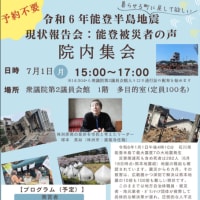 大震災から半年:のと被災者の声を聴く&地震と原発を考える〜7.1(月)&7.2(火)院内集会@東京・永田町
3ヶ月前
大震災から半年:のと被災者の声を聴く&地震と原発を考える〜7.1(月)&7.2(火)院内集会@東京・永田町
3ヶ月前
-
 大震災から半年:のと被災者の声を聴く&地震と原発を考える〜7.1(月)&7.2(火)院内集会@東京・永田町
3ヶ月前
大震災から半年:のと被災者の声を聴く&地震と原発を考える〜7.1(月)&7.2(火)院内集会@東京・永田町
3ヶ月前
-
 4/5北陸中日新聞に/明日はブックトーク! 会場は満員御礼、オンライン視聴は明日14時まで受付中
5ヶ月前
4/5北陸中日新聞に/明日はブックトーク! 会場は満員御礼、オンライン視聴は明日14時まで受付中
5ヶ月前
-
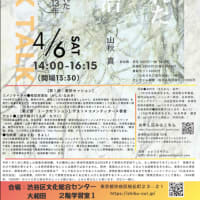 【ご案内】『ためされた地方自治』ブックトーク4/6(土)@東京・渋谷(後日配信のオンライン視聴参加も)
6ヶ月前
【ご案内】『ためされた地方自治』ブックトーク4/6(土)@東京・渋谷(後日配信のオンライン視聴参加も)
6ヶ月前
-
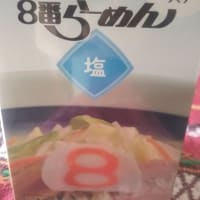 3/9「能登・珠洲原発を止めた人々とテレビ番組」ご報告
6ヶ月前
3/9「能登・珠洲原発を止めた人々とテレビ番組」ご報告
6ヶ月前
-
 3/9「能登・珠洲原発を止めた人々とテレビ番組」ご報告
6ヶ月前
3/9「能登・珠洲原発を止めた人々とテレビ番組」ご報告
6ヶ月前
-
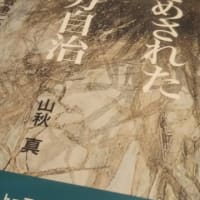 【ご案内】東京新聞で『ためされた地方自治』をご紹介いただきました
7ヶ月前
【ご案内】東京新聞で『ためされた地方自治』をご紹介いただきました
7ヶ月前
「祝島沖・上関原発計画」カテゴリの最新記事
 上関町長選_町議補選【動画その7】堀田候補の最終街頭演説@祝島
上関町長選_町議補選【動画その7】堀田候補の最終街頭演説@祝島 上関町長選_町議補選【動画その6】木村候補の街頭演説@最終日の祝島
上関町長選_町議補選【動画その6】木村候補の街頭演説@最終日の祝島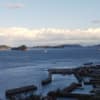 上関町長選_町議補選【動画その5】木村&堀田候補の最終街頭演説@祝島に先立つ挨拶
上関町長選_町議補選【動画その5】木村&堀田候補の最終街頭演説@祝島に先立つ挨拶 上関町長選・町議補選【動画その4】「祝島島民の会」推薦候補を紹介する清水代表
上関町長選・町議補選【動画その4】「祝島島民の会」推薦候補を紹介する清水代表 上関町長選&町議補選【動画その3】堀田候補を紹介する上関町議・清水康博さん
上関町長選&町議補選【動画その3】堀田候補を紹介する上関町議・清水康博さん 上関町長選&町議補選【動画その2】堀田圭介候補の第一声
上関町長選&町議補選【動画その2】堀田圭介候補の第一声 上関町長選&町議補選【動画その1】木村つとむ候補の第一声
上関町長選&町議補選【動画その1】木村つとむ候補の第一声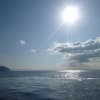 11年ぶりに、上関町長選挙へ(10月18日告示、23日投開票)
11年ぶりに、上関町長選挙へ(10月18日告示、23日投開票) マサカが続く山口県、イマドキ原発新設? 祝島島民の会が現場から発信
マサカが続く山口県、イマドキ原発新設? 祝島島民の会が現場から発信 祝島沖・田ノ浦からツイキャス中継はじまっています(2019.11.15)
祝島沖・田ノ浦からツイキャス中継はじまっています(2019.11.15)















